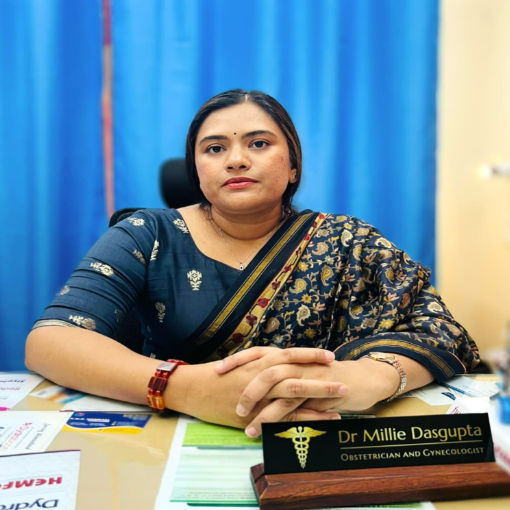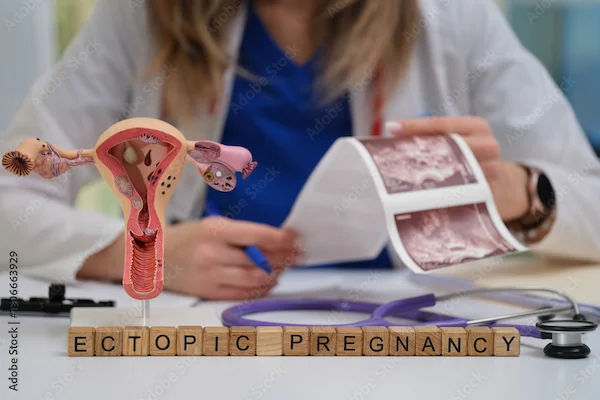Recurrent Pregnancy Loss: A Compassionate Guide to Causes, Tests, and Hope
Know about the pregnancy loss recurrently, what it is, causes, diagnosis, treatment, management amd more.

Written by Dr. Md Yusuf Shareef
Reviewed by Dr. D Bhanu Prakash MBBS, AFIH, Advanced certificate in critical care medicine, Fellowship in critical care medicine
Last updated on 13th Jan, 2026

Introduction
Experiencing one pregnancy loss is devastating. When it happens repeatedly, it can feel like an isolating and hopeless journey. If you are searching for answers about recurrent pregnancy loss (RPL), know that your grief is valid, and your quest for understanding is crucial. This guide is designed to walk with you through this challenging time, offering clear, medically accurate information and a compassionate perspective. We will demystify what RPL is, explore the potential causes from genetic factors to immune conditions, and outline the diagnostic process that can help you and your doctor find answers. More importantly, we will discuss the treatment and management options available, emphasising that for many, there is a path forward to a successful pregnancy. Our goal is to empower you with knowledge and hope, reminding you that you are not alone in this.
What Exactly is Recurrent Pregnancy Loss?
Medically, recurrent pregnancy loss is traditionally defined as the loss of two or more clinically recognised pregnancies before the 20th week of gestation. It's important to note that some experts now recommend evaluation after even two losses, especially for women over 35 or if the losses occur after seeing a fetal heartbeat. A "clinical pregnancy" is one confirmed by an ultrasound or histopathology. This definition distinguishes RPL from chemical pregnancies (very early miscarriages), though these are also significant losses. Understanding this definition is the first step in seeking appropriate care.
The Emotional Impact: You Are Not Alone
Beyond the clinical definition lies the profound emotional toll. The cycle of hope and loss can lead to feelings of grief, guilt, anxiety, and isolation. It is vital to acknowledge that RPL is a medical condition, not a personal failure. Studies suggest that RPL affects about 1-2% of couples trying to conceive. Remember, seeking emotional support from partners, family, support groups, or a therapist is as important as addressing the physical aspects. Your emotional well-being is a critical part of this journey.
Unravelling the Causes: Why Does Recurrent Pregnancy Loss Happen?
Consult a Top Gynaecologist for Personalised Advice
Identifying a cause is the primary goal of the RPL workup. In about 50-75% of cases, a cause can be found. The main categories of causes include:
Genetic and Chromosomal Factors
This is the most common cause of early miscarriage, accounting for about 50-60% of all first-trimester losses. Often, these are random chromosomal abnormalities in the embryo, such as aneuploidy (where there is an extra or missing chromosome), that prevent normal development. In about 2-5% of couples with RPL, one partner may have a balanced chromosomal translocation, where parts of chromosomes are rearranged. This doesn't affect the parents' health but can lead to unbalanced chromosomes in the egg or sperm, causing miscarriage.
Anatomic Abnormalities of the Uterus
Structural problems with the uterus can interfere with implantation or blood flow to the developing pregnancy. These include:
1. Congenital anomalies: Such as a uterine septum (a band of tissue dividing the uterine cavity), which is associated with a high risk of miscarriage.
2. Acquired conditions: Like uterine fibroids (especially those that distort the cavity), polyps, or scar tissue (Asherman's syndrome) from previous surgeries or infections.
Hormonal and Endocrine Disorders
A properly functioning endocrine system is crucial for sustaining a pregnancy. Key disorders linked to recurrent miscarriage include:
1. Thyroid disorders: Both underactive (hypothyroidism) and overactive (hyperthyroidism) thyroid can increase risk.
2. Uncontrolled diabetes: High blood sugar levels in early pregnancy are linked to miscarriage and birth defects.
3. Luteal Phase Defect: A theorised condition where the body doesn't produce enough progesterone to maintain the uterine lining, though its role as a sole cause of RPL is debated.
Immune System Dysfunction
The immune system's role is complex. Sometimes, it can mistakenly attack the pregnancy. Two main types are:
1. Autoimmune Disorders: Like Antiphospholipid Syndrome (APS), where the body produces antibodies that cause blood clots in the placenta. APS is a treatable cause of RPL.
2. Alloimmune Factors: This is a more theoretical area where the mother's immune system may reject the paternal antigens of the embryo. Treatments for this are still experimental.
Blood Clotting Disorders (Thrombophilias)
Certain inherited or acquired conditions that predispose a person to blood clots (thrombophilias) can cause clots to form in the placental vessels, disrupting blood flow. Testing for these, including Antiphospholipid Syndrome, is a standard part of the RPL workup.
The Diagnostic Journey: Finding Answers for Recurrent Pregnancy Loss
The diagnostic process includes:
What to Expect During Your First Consultation
Your doctor, likely a fertility specialist or a high-risk obstetrician, will take a detailed medical, surgical, and family history. They will ask about the specifics of each pregnancy loss (e.g., gestational age, whether a heartbeat was seen). This conversation is the foundation for determining which tests after multiple miscarriages are most appropriate for you.
Essential Tests in the RPL Workup
The evaluation is systematic, aiming to rule out or identify the causes mentioned above.
Genetic Testing (Karyotyping)
Parental Karyotyping: A blood test from both partners to check for a balanced translocation.
Products of Conception Testing: If tissue is available from a miscarriage, genetic testing can determine if the loss was due to a chromosomal abnormality, which can provide significant closure and guide future steps.
Imaging Tests (HSG, Sonohysterogram, Hysteroscopy)
1. Hysterosalpingogram (HSG): An X-ray that examines the shape of the uterine cavity and checks if the fallopian tubes are open.
2. Sonohysterogram/Saline Infusion Sonogram (SIS): An ultrasound where fluid is injected into the uterus to get a clearer view of the uterine lining and detect polyps, fibroids, or a septum.
3. Hysteroscopy: A minor procedure where a thin camera is inserted into the uterus, allowing the doctor to directly visualise and sometimes correct abnormalities. If an anatomical issue is suspected, consulting a gynaecologist at Apollo24|7 can help you understand which imaging test is right for you.
Blood Tests for Hormones and Clotting
A comprehensive panel may include:
1. Hormonal: Thyroid-Stimulating Hormone (TSH), Prolactin, Progesterone.
2. Blood Clotting: Tests for Antiphospholipid Antibodies (Lupus Anticoagulant, Anti-Cardiolipin Antibodies).
3. Ovary Reserve: Day 3 FSH and AMH to assess egg supply. Apollo24|7 offers convenient home collection for these and other essential blood tests, making the diagnostic process smoother.
Get Your Health Assessed
Treatment and Management: Pathways to a Healthy Pregnancy
Addressing the Underlying Cause, the treatment is highly specific to the cause identified:
Anatomical Issues: Surgery (e.g., hysteroscopic resection of a septum or fibroids) can significantly improve outcomes.
APS/Thrombophilias: Treatment with low-dose aspirin and heparin (a blood thinner) during pregnancy can dramatically increase the chance of a live birth.
Hormonal Issues: Medication to manage thyroid levels or diabetes is essential.
Parental Chromosomal Translocation: Options may include IVF with Preimplantation Genetic Testing (PGT) to select embryos with the correct chromosomal number.
The Role of Lifestyle and Wellness
While not a direct cause, lifestyle factors can influence pregnancy health. Maintaining a healthy weight, eating a balanced diet, avoiding smoking and excessive alcohol, and managing stress are all supportive measures. Some studies suggest supplements like Vitamin D and CoQ10 may improve egg quality, but always consult your doctor before starting any new supplement.
When the Cause is Unexplained: Supportive Care
In about 25-50% of cases, no cause is found after a thorough evaluation. This can be frustrating, but it is not hopeless. The prognosis for unexplained recurrent pregnancy loss is often good. With tender loving care (TLC) protocols—which may include early and frequent monitoring, progesterone supplementation, and emotional support—the live birth rate in the next pregnancy can be as high as 70-75%.
Emotional Healing and Support
The journey through RPL is as much emotional as it is physical. Allow yourself to grieve. Seek support from your partner, but understand that everyone grieves differently. Consider joining a support group where you can connect with others who truly understand. Professional counselling can provide tools to manage anxiety and grief. Prioritising your mental health is a critical component of preparing for a future pregnancy.
Conclusion
The path of recurrent pregnancy loss is undeniably challenging, but it is a path you do not have to walk alone. Advances in medical science mean that more couples than ever before are finding answers and going on to have healthy babies. The key is to seek care from a knowledgeable healthcare provider who can guide you through a thorough evaluation and create a personalised plan. Remember, your strength and resilience are immense. Use the information in this guide as a starting point for a conversation with your doctor. Take that next step, whether it's scheduling a consultation or simply allowing yourself to feel a flicker of hope. If you have experienced two or more losses, consider booking an appointment with a specialist on Apollo24|7 to begin your diagnostic journey.
Consult a Top Gynaecologist for Personalised Advice
Consult a Top Gynaecologist for Personalised Advice

Dr. Vineet Mishra
Infertility Specialist
36 Years • MD, Phd, DSc
Ahmedabad
Apollo Hospitals - Gandhinagar, Ahmedabad, Ahmedabad

Dr. Shruti I
Obstetrician and Gynaecologist
7 Years • MBBS, MS (OBSTETRICS & GYNAECOLOGY)
Bangalore
Apollo Clinic Bellandur, Bangalore

Dr. Srinka Mukherjee
Obstetrician and Gynaecologist
7 Years • Obstetrics & Gynaecology
Bansdroni
Siddhita Healthcare., Bansdroni

Dr. Plabani Sarkar
Obstetrician and Gynaecologist
17 Years • Advanced Diploma in Reproductive Medicine, University of Schleswig Holstein Kiel, Germany 2024 Fellowship - Reproductive Endocrinology and Infertility, PGIMER Chandigarh 2021 – 2022 Specialized in female endocrinology, endometriosis & male infertility. Certification in Reproductive Genetics,Valencia,Spain 2024 Certification in Oncofertility, American Society of Reproductive Medicine 2024 Certification in Obstetrics & Gynecological Ultrasounds,NHS-UK(Royal College of Radiologists) 2024 D.N.B. - Obstetrics & Gynaecology, NBE, New Delhi 2021 MD - Obstetrics & Gynaecology, AIIMS, New Delhi 2014 - 2016 Specialized in Laparoscopic, Hysteroscopic procedures & Infertility treatments. MBBS, R.G. Kar Medical College, Kolkata 2007 - 2013 Honours in Preventive & Social Medicine. Gold Medal in Forensic Science & Medicine.
Bengaluru
Apollo Clinic Mahadevapura, Bengaluru

Dr. Millie Dasgupta
Obstetrician and Gynaecologist
10 Years • MBBS,DNB (Obst. & Gynae.)
Kolkata
MCR SUPER SPECIALITY POLY CLINIC & PATHOLOGY, Kolkata
Consult a Top Gynaecologist for Personalised Advice

Dr. Vineet Mishra
Infertility Specialist
36 Years • MD, Phd, DSc
Ahmedabad
Apollo Hospitals - Gandhinagar, Ahmedabad, Ahmedabad

Dr. Shruti I
Obstetrician and Gynaecologist
7 Years • MBBS, MS (OBSTETRICS & GYNAECOLOGY)
Bangalore
Apollo Clinic Bellandur, Bangalore

Dr. Srinka Mukherjee
Obstetrician and Gynaecologist
7 Years • Obstetrics & Gynaecology
Bansdroni
Siddhita Healthcare., Bansdroni

Dr. Plabani Sarkar
Obstetrician and Gynaecologist
17 Years • Advanced Diploma in Reproductive Medicine, University of Schleswig Holstein Kiel, Germany 2024 Fellowship - Reproductive Endocrinology and Infertility, PGIMER Chandigarh 2021 – 2022 Specialized in female endocrinology, endometriosis & male infertility. Certification in Reproductive Genetics,Valencia,Spain 2024 Certification in Oncofertility, American Society of Reproductive Medicine 2024 Certification in Obstetrics & Gynecological Ultrasounds,NHS-UK(Royal College of Radiologists) 2024 D.N.B. - Obstetrics & Gynaecology, NBE, New Delhi 2021 MD - Obstetrics & Gynaecology, AIIMS, New Delhi 2014 - 2016 Specialized in Laparoscopic, Hysteroscopic procedures & Infertility treatments. MBBS, R.G. Kar Medical College, Kolkata 2007 - 2013 Honours in Preventive & Social Medicine. Gold Medal in Forensic Science & Medicine.
Bengaluru
Apollo Clinic Mahadevapura, Bengaluru

Dr. Millie Dasgupta
Obstetrician and Gynaecologist
10 Years • MBBS,DNB (Obst. & Gynae.)
Kolkata
MCR SUPER SPECIALITY POLY CLINIC & PATHOLOGY, Kolkata
More articles from pregnancy
Frequently Asked Questions
1. Is recurrent pregnancy loss common?
While miscarriage is common (affecting about 15-25% of pregnancies), recurrent pregnancy loss (RPL), defined as two or more losses, is less so, affecting approximately 1-2% of couples.
2. Can stress cause recurrent miscarriage?
Everyday stress is not a direct cause of RPL. The primary causes are medical, such as genetic or anatomical issues. However, extreme chronic stress can impact overall health, and the experience of RPL itself is a significant source of stress, highlighting the need for emotional support.
3. What is the success rate of pregnancy after recurrent loss?
The success rate is highly dependent on the cause. Even when no cause is found (unexplained RPL), studies show a 70-75% chance of a successful pregnancy in the next attempt with supportive care.
4. Should I be tested after my second miscarriage?
Many experts now recommend beginning an evaluation after two consecutive miscarriages, especially for women over 35. It's a reasonable step to discuss with your doctor.
5. Is there a male factor in recurrent pregnancy loss?
Yes. While often focused on the female partner, male factors can contribute. Paternal chromosomal abnormalities and sperm DNA fragmentation have been linked to an increased risk of miscarriage. A complete evaluation should include both partners.







